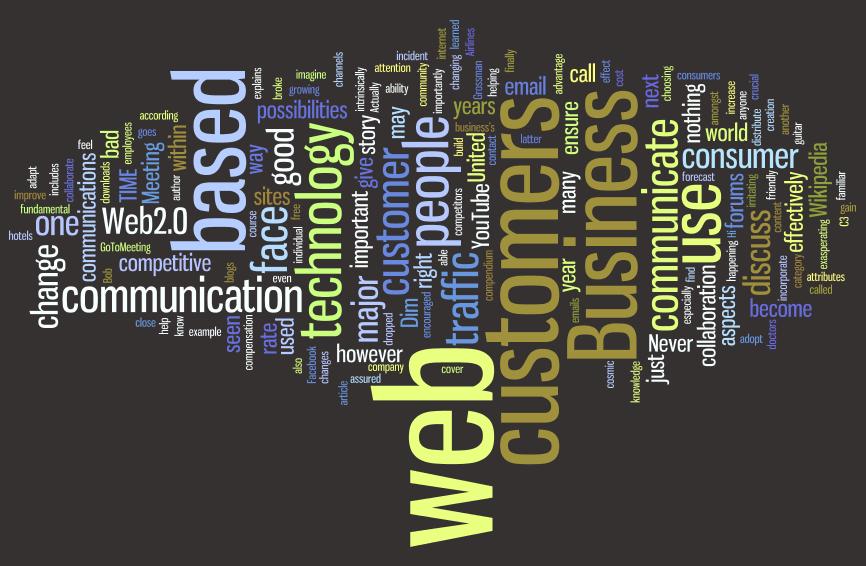MISCONCEPTIONS ABOUT CLOUD COMPUTING
Cloud computing is something we've heard a lot about in recent years. While some of us have detailed knowledge about it, most of us don't actually know much about it. So, what is cloud computing?
Cloud computing or, in its functional sense, Online Information Distribution (Source) is the general term for services that enable shared information sharing between computing devices. In this respect, it's not a product, but a service. While companies and users used to communicate and share through their own private networks, advancements in technology now put the internet at everyone's fingertips through portable devices. As a result, sharing information over the internet has become a natural concept. Cloud computing used to envision data being used in online clouds rather than on computer hard drives. But now, cloud computing offers much more.
Cloud computing offers us many services. However, its technical lack of understanding and the varying perceptions of those who introduce it have led to numerous misunderstandings. These can be listed below.
Cloud Computing Will Store My Data on the Internet: Many people avoid cloud computing because they believe their data is being shared online, citing the importance of privacy. In reality, cloud computing's backup service involves storing your data in the databases of the company providing the service. This allows you to access your data from anywhere with an internet connection, with your authorization.
Cloud Computing is Only Good for Backup: This is one of the biggest misconceptions. In fact, this stems partly from cloud computing promoters. They create the impression that cloud computing is all about backup. In reality, cloud computing services are described using three models.
1- Infrastructure Service (IaaS)
In this most basic cloud service model, cloud providers offer servers as physical or virtual machines. These virtual machines are run as guests by a hypervisor, such as Xen or KVM.
2- Platform Service (PaaS)
In the platform as a service (PaaS) model, cloud providers distribute a computing platform that typically includes an operating system, programming language execution environment, database, and web servers.
Application developers can develop and run their own software solutions on a cloud platform without the expense, hassle, and need to manage the underlying hardware and software layers of purchasing them.
3- Software as a Service (SaaS)
In this model, cloud providers install and operate the application software in the cloud, while cloud users access the software from cloud service providers. Cloud users do not manage the cloud infrastructure and platform on which the application runs. This eliminates the need for the application to be installed and run on the cloud user's own computer.
Source : http://tr.wikipedia.org/wiki/Bulut_bili%C5%9Fim
As we can see from these models, cloud computing provides a wide range of services. The main goal is to make information accessible from anywhere in the world, speed up workflows, and eliminate the infrastructure burden many companies require to benefit from these services.
Cloud Computing Not Only Saves Money: Another common misconception is that companies immediately think they'll save money when they switch to cloud computing. Of course, companies can use their resources more efficiently through certain automations and save money, but that's not the only benefit of cloud computing. There are many other advantages. Imagine presenting your meeting documents over the cloud during face-to-face meetings with your clients. Just imagine the time and effort you'll save by reducing your dependence on a single platform and streamlining your workflow when your system is accessible from anywhere within your company. Saving money is actually secondary to all of this.
Private Cloud Must Be On-Premises: Many companies think of a private cloud as creating a dedicated cloud space within a company's data center. However, in a public cloud, private cloud space is allocated to companies. This allows them to avoid maintenance and management costs. This saves them maintenance costs and time, while also allowing for more efficient operation.
Data Servers Are More Secure Than Cloud Computing: Bir diğer yanlış bilinen ise firmanın veri sunucularına göre bulut bilişimin daha güvensiz olduğu düşüncesidir. Aslında kıyaslama yaptığımız zaman bulut bilişim daha güvenli olabiliyor. Verileriniz hizmeti veren firmanın veri merkezlerinde binlerce harddisklere dağıtılarak kaydedildiğinden hem bilgileriniz bir noktada toplanmamış olur hem de harddisk bozulmaları durumlarında veri kaybı yaşamazsınız. Aslında veri sunucularınızda böyle bir kayıp yaşadığınızda verilerinizi kurtarmak için çok büyük masraflara girebilirsiniz. Ya da böyle bir veri sunucusu oluşturmak başka bir büyük masraftır. Veri merkezinden veri güvenliğinizi sağlayabilmek için raid teknolojileri kullanmak durumunda kalırsınız. Fakat raid teknolojisi asla %100 güvenirlilik sağlamaz. Veri kaybı yaşadığınızda bozulan harddiskinizdeki verileri kurtarmak için ise binlerce on binlerce dolar harcamak zorunda kalabilirsiniz.
Cloud Computing is Costly: While many people know that cloud computing saves money, many others consider these services expensive. In fact, if you're using it for data backup, it's significantly cheaper than building your own data server. Furthermore, cloud computing eliminates the additional costs and responsibilities of maintaining your data servers. If you want to build your own data center, you'll need to purchase a powerful server. Security for this server will incur additional costs. You'll need to integrate software and technologies into this server to ensure data security. Furthermore, ensuring the server's continuous and trouble-free operation requires the time and effort of your IT specialist. However, with the tens of thousands of dollars you'll spend on a data center, you can purchase much longer-term services with cloud computing and avoid the many responsibilities associated with a data server.
Cloud Computing for Large Companies: In fact, cloud computing services are beneficial for everyone, from large companies to ordinary users. There are services that everyone can benefit from and streamline their workflows. While an average person can use data backup to access their data anywhere, small businesses can minimize their dependence on a computer by enabling their web-based software to run in the cloud. This allows them to do their work from anywhere. Many similar examples can be cited. Furthermore, while it's thought that 50 percent of the 14 million new jobs expected to be created by cloud computing by 2015 will be reflected in small and medium-sized businesses, this is not actually the case.
Erhan Kılıç






